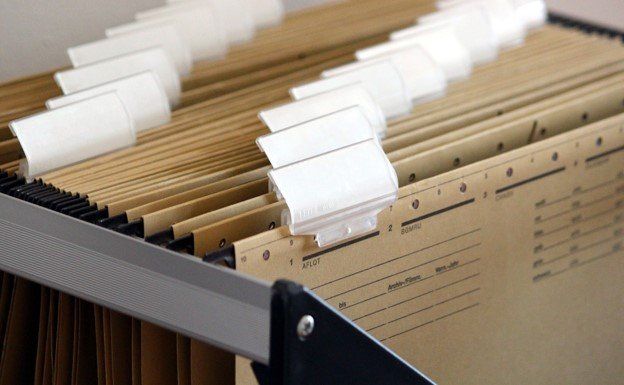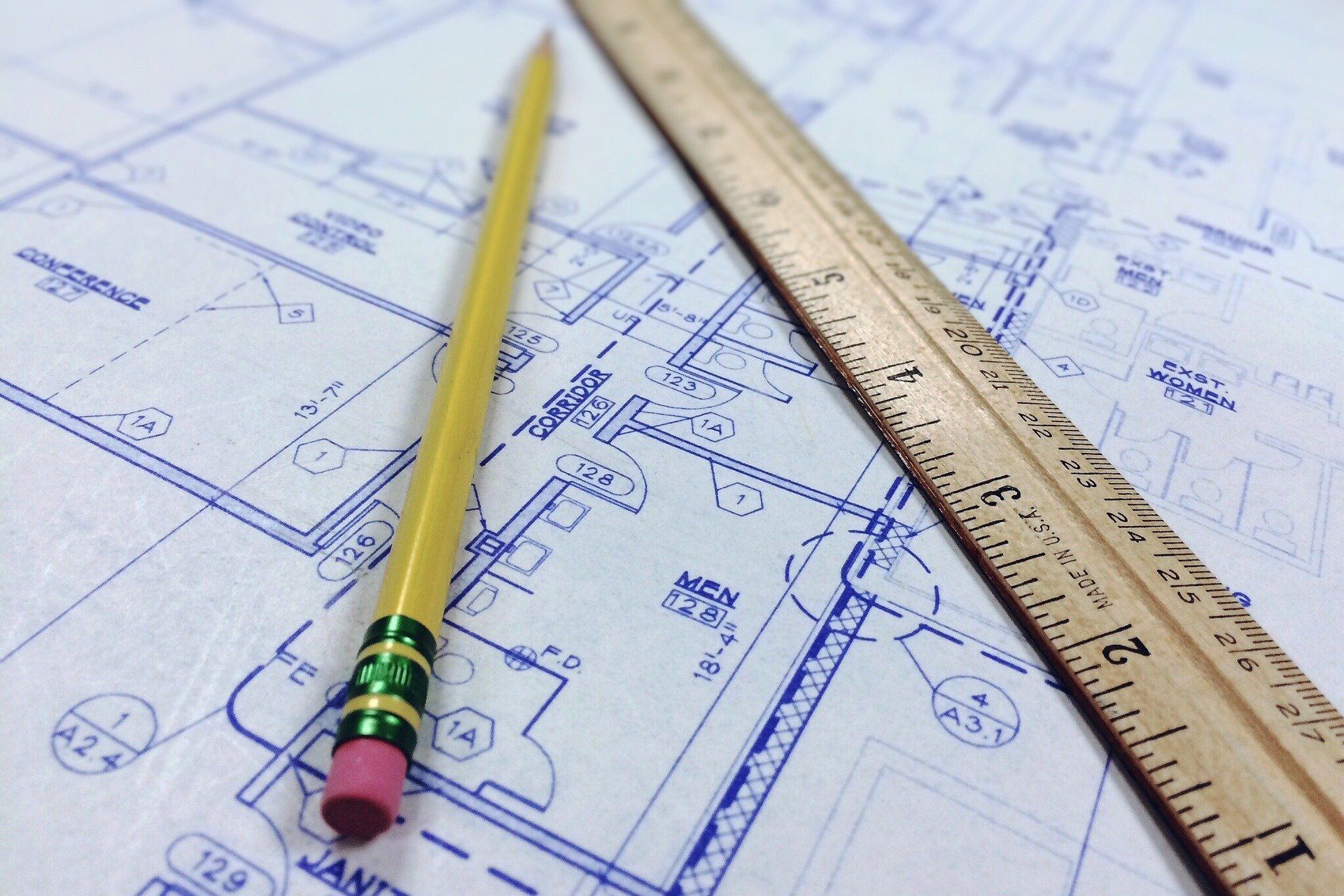Rock, Paper, Scissors… File!
Solutions for cutting the paper clutter that is weighing you down like a rock.

Paper is the one thing that weighs us down like a rock and is hard to cut back on! Every day we go to our mailboxes and find more and more paper, much of it unsolicited! If you’re looking to cut the clutter when it comes to paper and find a better way to organize the paperwork you do need to keep, read on…
One of the easiest things you can do to eliminate the piles of paper is to place a trash can between your mailbox and your counter, table or desk. As you walk in and page through your new mail, you can easily drop off all unsolicited mail and advertisements in the trash before sitting it down.
Next, designate a place where you’ll place all of your bills and keep them separate from the general mail coming in, so they don’t get lost and are easy to find on the days you designate for paying the bills. Of course with today’s technology you can opt to go paperless with some companies and have your bill payments automatically withdrawn from your banking account. Once bills are paid, you can toss out the paperwork or keep the most recent bill if you don’t have important customer service and account numbers written down. If you create a file folder for bills, it can be handy to write each company, account number and customer service number on the file folder, so you always have it when needed. If you want to keep track of your bills over the course of a year, you could jot notes on the folder or a separate piece of paper for how much electricity, gas, water, etc., was used and cost each month, to save on having to keep each month’s bill.
Then, separate out all the coupons or special catalogs for shopping. It’s helpful to use a large clear pocket or envelope to hold your coupon clipper magazine, warehouse club mailings, coupon mailers, etc. Keep this in your car so you have it when you’re out shopping or need a restaurant coupon. Coupon Clipper magazines often include a number of pages devoted to home repair businesses. If you aren’t in the market for those services or don’t frequent certain stores or restaurants in the publication, you can tear out those pages to save space and reduce the weight of your pocket or envelope. If you find that you spend a lot of time clipping coupons, but never using them, it may be time to reevaluate what you usually buy, where you keep your coupons and if it’s really worth the time to clip and sort the coupons. Some stores are now offering coupons on their website or phone applications (apps) so you can just click on your device and save them to your club card or account to be automatically used at the register. More companies are going this route since Covid-19 has impacted customer/cashier interactions.
Many restaurant menus can now be found on the internet. This is helpful as most menus are not dated and it’s hard to know how old the menu is and when the menu has changed or the prices have increased. To save on storing menus at home or in your car, you can take pictures of the menus and keep them on your computer or phone. If you have a favorite or standard order that you place with your favorite restaurant, you can program their phone number into your phone and in the “notes” area, you can add any information you usually need like combo numbers, sub or pizza toppings, etc.
Magazines are another source of paper. If you’ve read the magazine and found an article you’d like to hang onto, just remove it from the magazine and recycle the rest. Then you can file the article under a topic like home décor or home repair, vacation tips, etc. There’s no need to have a collection of magazine ads and articles that don’t interest you. If you have trouble finding time to read your magazines, determine if you can cut back on subscriptions and receive a refund, gift the remaining issues to someone else by changing the address, or schedule time to read them. If you find yourself waiting in the car for a spouse or appointment, you may want to move your unread magazine and book there for a chance to catch up on your reading.
If some of your mail is reminders for scheduled appointments, keep a calendar handy by the phone or refrigerator and make a note of it, or put it by the computer to add to your digital calendar the next time you’re on the computer. Then you can toss the card or place it somewhere else as a reminder. Dental appointments are usually 6 months out, so those reminder cards are helpful in the medicine cabinet to remind you to keep flossing before your next exam!
If you have mail that doesn’t have a home, create one! Some mail can’t be dealt with right away or isn’t for you. Set up a basket, box or system so you, your spouse and other family members can easily tackle the mail coming into the home. Maybe each family member needs their own mail slot, perhaps a box on the counter can serve as a go-to for all new mail coming into the home. Having a system in place can keep the mail from piling up or spreading throughout the house.
If you already find you are surrounded by old paperwork, set aside time in front of the tv or with some music playing in the background to generally sort papers by type or individual. You can quickly sort papers onto piles by person or topic, like husband or wife, medical, financial, receipts, etc., and then go a little deeper to open envelopes and pare down the papers within each one. After you have your separate piles, see if you can eliminate the extra pages and offers from the necessary ones in each stack. Take the time to sort by date and eliminate the items you don’t need from months or years past. Once you know how much you will be keeping, you’ll know better what type of storage system you’ll need.
Accordion files are a great way to separate mail by date, alphabet or name. How would you usually look for your old credit card statement? By the date that it needs to be paid, under the letter C for credit card, under V for Visa? Think through what makes sense for you and create a system that works for you. Accordion files don’t hold much paperwork, so it may be a better solution for you to keep only the necessary papers for the year.
If you need to keep records for longer periods of time, you may want to purchase a filing cabinet. This is very helpful when you need to separate personal and business files, receipts and paperwork. Color-coded hanging file folders and tabbed folders will help you separate out papers and label them for a system that is easy to use. Be sure to give each folder a clear name or heading. Filing multiple things under “Miscellaneous” will not help you find it later when you need it. If a folder is bursting at the seams, it’s time to divide it in half. For example, a folder for medical records may be too large. Maybe you need to separate it by year, by physician, surgery or so forth.
If you have lots of paperwork, such as taxes from previous years, you may want to purchase bankers boxes or filing boxes from an office supply store. These work well as they can be stored on top of one another and labeled with the contents.
When it comes to product manuals and instructions, it’s helpful to cut out and toss the instructions that are in other languages that you can’t read. Some products even have separate booklets or pages for other languages. There’s no sense in keeping paperwork you can’t decipher. Next label a folder or envelope to sort by product or location. For example, you may want to keep all of your manuals for power tools and lawn equipment in one folder located in the garage. Appliances may be divided up by location, such as the laundry room or kitchen. What makes the most sense for your needs? Does it work better for you to keep all the manuals in one place and divide them into separate file folders? Is it better for you to staple receipts and warranties to the manuals or to file them separately? If you’re missing a manual or have one you don’t want to store, search the internet. Many companies and users post manuals online, some of which are even updated after recalls and product improvements.
Find systems that work for you to organize what you want to keep and eliminate the paper flowing into your home. Ask to be removed from mailing lists. Eliminate subscriptions that you no longer value. Go online for your bills, catalogs, menus, manuals and coupons. By cutting back on the paper coming into your home, you’ll save space, time and money, freeing you up to read the books, newspapers and magazines that interest you!











